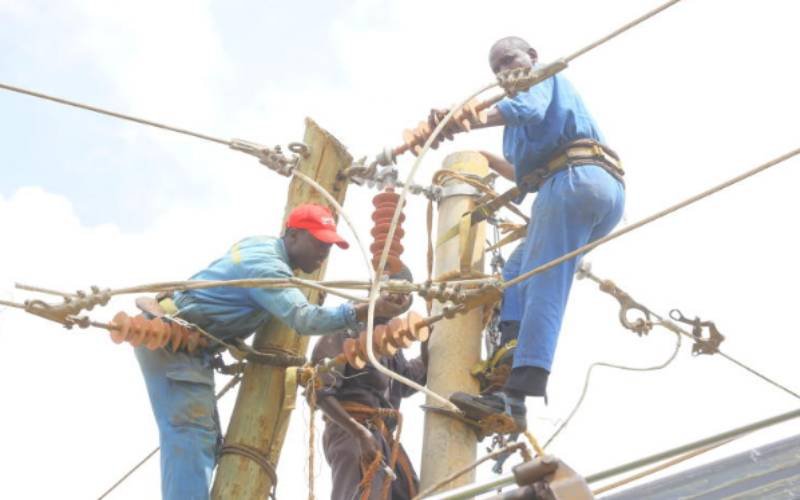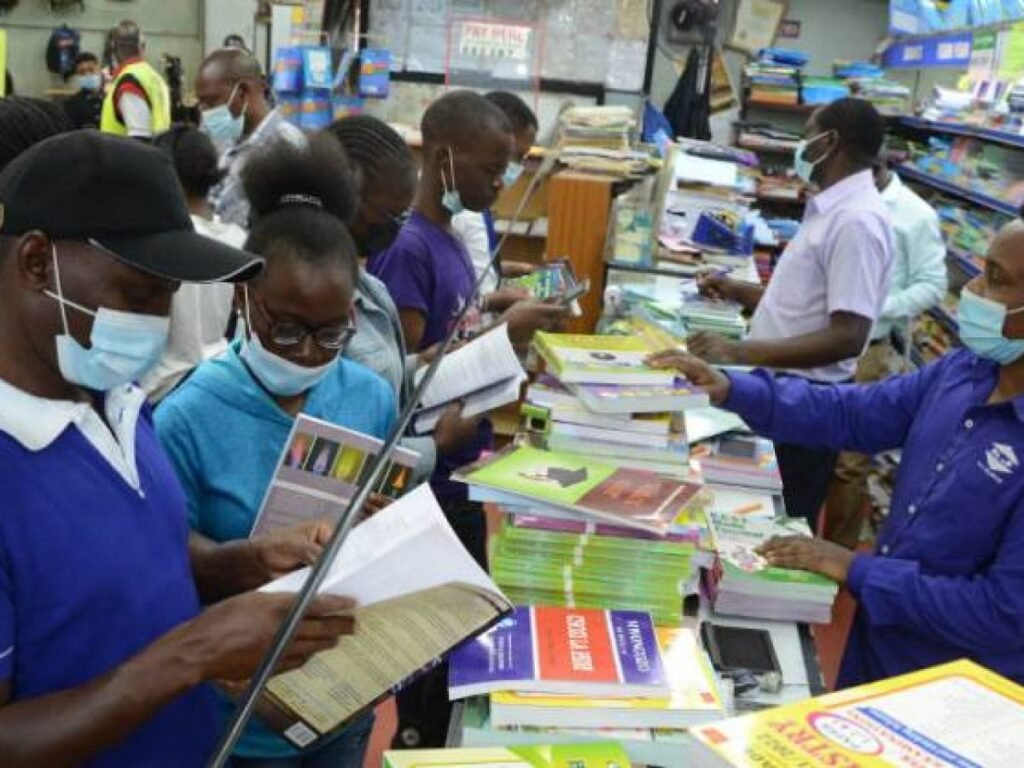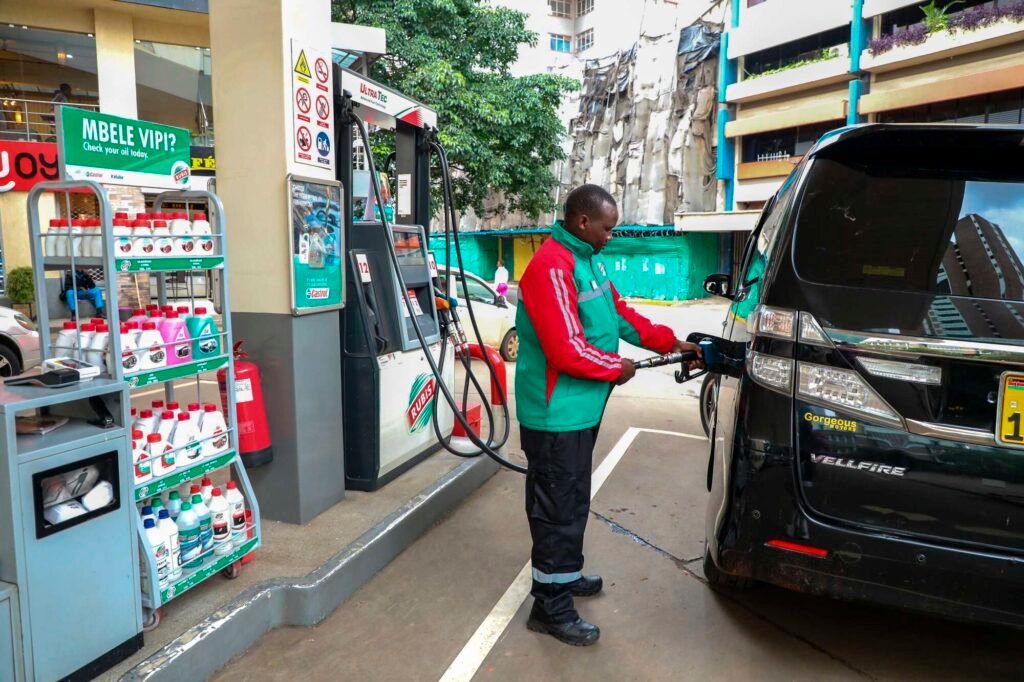General News
Power Restored In Several Parts Of Kenya

Kenya Power says power has since been restored in Nairobi, Western Kenya, Mt. Kenya Region, North Rift, South Nyanza and Central Rift.
The company says it is working to restore power in the remaining affected areas.
Earlier, we had reported the Company said an outage in many parts of the country on Tuesday morning was caused by collapsed towers on Kiambere-Embakasi high voltage transmission line.
“An update on the restoration progress will be issued in due course,” said Kenya Power in a press statement.
Kenyans took to Twitter to express their frustration following the outage that affected different parts of the country.
Kenya Power topped Twitter trends, with at least 12,800 tweets posted in protest against the blackout.
2nd blackout in as many days. Kenya Power should have warned Kenyans that the 15% reduction in power bills also comes with a 15% reduction in supply.
— FERDINAND OMONDI (@FerdyOmondi) January 11, 2022
Kenya Power Used to be called KPLC… Kenya Paraffin Lights & Candles. It Still is… 🤣
— Elee Global 🇰🇪 (@EleeGlobal) January 10, 2022
General News
IMF Criticizes Kenya’s Fuel Subsidy Re-Introduction, Warns of Budget Distortion

The International Monetary Fund (IMF) has criticized Kenya for re-implementing the fuel subsidy scheme, expressing concerns that the lack of funds to pay oil marketers could distort the budget.
Despite a previous commitment by President William Ruto in 2022 not to subsidize pump prices, the government reintroduced the subsidy, preventing petrol and diesel prices from reaching higher levels in October 2023.
The IMF argues that the subsidy was applied without available funds, as the Treasury has yet to pay oil marketers at least Ksh9 billion ($55.6 million) accumulated from the previous year. President Ruto’s decision to reinstate subsidies goes against conditions set by the IMF for accessing loans.
Petrol and diesel prices, which were Ksh217.36 ($1.34) and Ksh205.47 ($1.27) respectively in Nairobi in October 2023, remained lower than the potential Ksh220.43 ($1.36) and Ksh217.11 ($1.34) due to the subsidy. However, the IMF disapproves of the decision, emphasizing that the removal of the subsidy was a key condition for a 38-month budget support scheme.
The IMF criticizes the prolonged process of forming a taskforce and delays in implementing decisions regarding fuel pricing.
The removal of the subsidy in May of the previous year led to record-high pump prices, crossing the Ksh200-mark later in the year due to a combination of subsidy removal and a VAT increase to 16 percent.
Kenya’s administration, faced with rising fuel costs, chose to reinstate the subsidy, prompting the IMF to raise alarms over the lack of budgeted funds and potential distortions in the country’s financial plans.
The ongoing disagreement highlights the challenges and consequences associated with balancing domestic economic policies and meeting international financial commitments
General News
Parents in Meru County Turn to Second-Hand Books Amid Economic Hardships

As the back-to-school rush season unfolds in Meru County, a growing number of parents are making a strategic choice to purchase second-hand books for their children.
This decision stems from the challenging economic conditions that have prompted families to seek ways to cut costs.
Among these parents is Ms. Prisca Gakii, who revealed that opting for second-hand books allows her to save money, which can then be allocated towards essential expenses like school fees.
She highlighted a practical advantage for Form-One students, emphasizing that using older books can protect them from potential theft, as new books often become targets for less scrupulous classmates.

Ms. Gakii pointed out a notable price difference, citing an example of a new Oxford dictionary priced at almost Sh1,900, compared to a used one available for Sh1400.
She justified her preference for the older but more affordable option, emphasizing that they contain the same content.
Janet Wamuyu, a second-hand books trader, shed light on the lucrative nature of their business during the opening of the first term, which coincides with the peak season.
As learners transition to new grades or classes, there is a heightened demand for various books, including dictionaries, Kamusi, and Golden Bells.

Wamuyu explained that this period, especially when Form-One students are joining school, facilitates easy acquisition of books for new stock.
The trading process involves exchanging books for the next grade or class at a lower rate, providing an economical alternative for parents instead of purchasing an entirely new set of books.
She further noted that their source of new stock comes from parents whose children have completed their studies and no longer require the books.
Despite the success during the peak season, Wamuyu acknowledged the challenges faced during other times of the year when only a few revision books are in demand, highlighting the cyclical nature of the business in Meru County.























